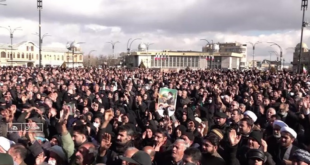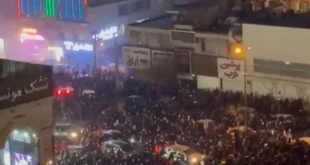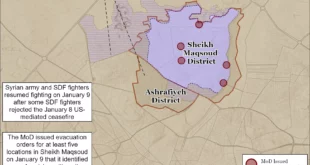BAGHDAD — The cellos were once looted by roaming armed gangs and suicide bombers have shattered the ballerinas’ mirror-panelled halls.
But love of the arts keeps bringing a group of students to Baghdad’s Music and Ballet school.
“My grandfather played the violin so my family encouraged me to play it. I like to play Mozart,” said Medya Sarmad, 14.
“I want to continue in this school despite the bad situation. One day I want to become a composer.” The school stands next to a military base which has been the target of many suicide and mortar attacks by insurgents bent on toppling the US-backed government.
Inaugurated in 1969, it was once one of Iraq’s most prestigious arts centres. But now it struggles to stay open in the chaos that is Baghdad three years after the US invasion.
Men with assault rifles guard the school’s gates as children carrying violin cases or wearing tutus enter the building.
Despite its location in a dangerous district, the students — Muslim Shiites and Sunnis as well as Christians — say they find solace in the school away from Baghdad’s daily bloodshed, which has pushed the country close to sectarian civil war.
“When I enter the ballet hall, I forget all the chaos outside,” said 10-year-old Balsam Imad, dressed in a bright red tutu and a white leotard.
The mournful sound of a violin fills one classroom. In the ballet hall, boys and girls dance in pairs, elegantly rehearsing their movements as teachers give commands.
But violence has taken its toll, said principal Najiha Naif.
Students have dropped out because many are afraid of getting killed on the way to class.
Blasts have shattered the school’s windows and mirrors.
Gunmen have stormed the school ground to take cover during gunbattles while students played string instruments and ballerinas tiptoed to the sound of the grand piano.
Like many other buildings in Baghdad, the school was plundered during the days that followed the collapse of Saddam Hussein’s rule.
Before war, the school had problems accommodating all the students who applied, Naif said. The centre now has 200 students and it survives in part thanks to foreign donations.
“We have lost many talented students,” she said.
Bilal Auf, a 12-year-old who plays the bassoon, said his family moved from the dangerous Dora neighbourhood after receiving death threats — a common occurrence these days as sectarian violence engulfs Iraq.
“If we dropped out of school and stayed home, Iraqi culture would die,” he said.
 Eurasia Press & News
Eurasia Press & News



